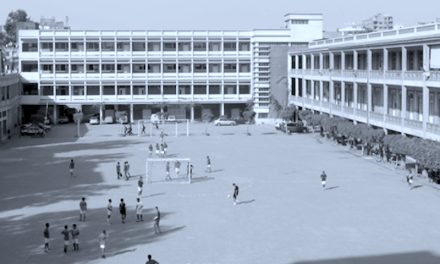The Swedish author of ‘The Swimmer’ spent almost a year in Syria as a teenager. Part of him never left
THE WALL STREET JOURNAL | 27/03/2015
By JOAKIM ZANDER
I WAS 15 IN 1990 when my father left his civilian job to take a position as a military observer for the United Nations in Syria. When we first discussed it around the kitchen table, the move felt like a dream, an adventure of unimaginable scope. I had grown up in a tiny Swedish town where nobody ever went anywhere. But we were moving to Syria. The months before the move I could think of nothing else.
Yet, on that first day, as I walked past the spindly trees of the El-Jahez Park on my way to my new American school in Damascus, it felt like I’d fallen through a hole in my old life and onto the dust-covered sidewalk in this ancient, backwater metropolis.
That first day, in ninth grade algebra class, Mr. Hodge asked me to complete a calculation on the white board that felt like astrophysics.
“There is never a good time to do this the first time,” he said.
And when I failed my first test weeks later, he let me take it again, and again, until I passed. All those second chances. All that American optimism and encouragement. Syria made me fall in love with America, even if I mostly hid in the back of the class whispering the foreigner’s prayer of invisibility.
Some of my friends arrived to school by limousine, armed body guards opening doors for them, bit actors in a timeless Middle Eastern choreography of privilege. There were whispers of Riwa’s dad selling guns to the Hezbollah, school dances and the soccer derby against our archenemies at the Pakistani school, where I scored two goals and got a yellow card in a brief, dizzying spell of unexpected stardom.
Once I went with my school team to play a soccer game against our sister school in Aleppo. For some reason the game was canceled, but we had come all the way so we had a party, dancing self-consciously in the dark, maybe forty of us, mostly Syrians, all of us teenagers, halfway Americanized, always half somewhere else.
I can never forget Aleppo. We went back there sometimes with my family and got lost among spice merchants and carpet salesmen. The streets seemed unpredictable, like they never left you at the same exit twice. The Syrians called it the gray city, but to me it sparkled and glowed, like myth, like a fairy tale. Now it makes me cry. Now that only ruins remain.
After Christmas when Operation Desert Stormbegan and Iraqi SCUD missiles crossed the Golan Heights aiming for Tel Aviv or Haifa, most Westerners were evacuated and the ranks in the Damascus Community School thinned until it was only me and my brother and the Syrians left. That war remained distant for the teenage me, just rumors among the news-starved adults and a nightly radio bulletin on BBC. As the missiles fell somewhere else, I was deep into the Clash, exams and the puzzle of high school social codes.
I can’t remember feeling sad leaving Syria early that June. It had been the greatest adventure of my life, but my existence at the school was always transient, half ghost, however neutrally American my accent became, however much I learned to lace it with Arabic slang. But as we drove off in an old U.N. car for the last time that summer, I made for the first time the banal discovery of travelers everywhere: however far away I might go, I would never entirely leave.
‘As we drove off for the last time, I made the discovery of travelers everywhere: I would never entirely leave.’
As I write this, almost twenty-five years later, my little brother has dug out the yearbook from our time in the Damascus Community School. We lean over it laughing at our memories of teachers and legends and the obese vice principal with the horrible temper. As we close the yearbook the faces of my classmates are still alive before me and they blend with the images of the dead we are fed every day, anonymous bodies lying in the bombed-out streets, in shallow graves and ditches. I know that those of my old friends that I have managed to shadow on the Internet are safe, that their wealth and connections whisked them out of harm’s way to Dubai or London, to banks and engineering companies, to lives that seem much like my own. That is what privilege does. It saves you from dying in a ditch.
My brother went back to visit the school some years ago, before the first stone was thrown by rebels, before the demonstrations and the bullets, before the unspeakable carnage. He was traveling through the Middle East and stopped in Damascus. He says the school looked the same, but that the fence around it had doubled in size.
On Jan. 22, 2012, it was closed indefinitely.
THE WALL STREET JOURNAL





